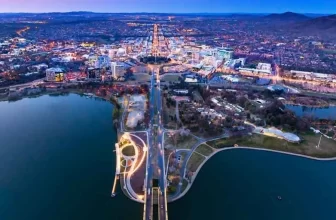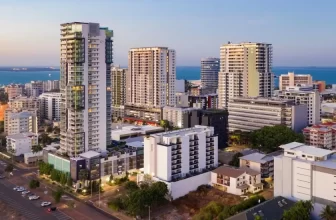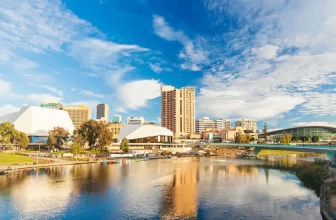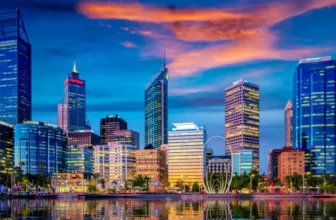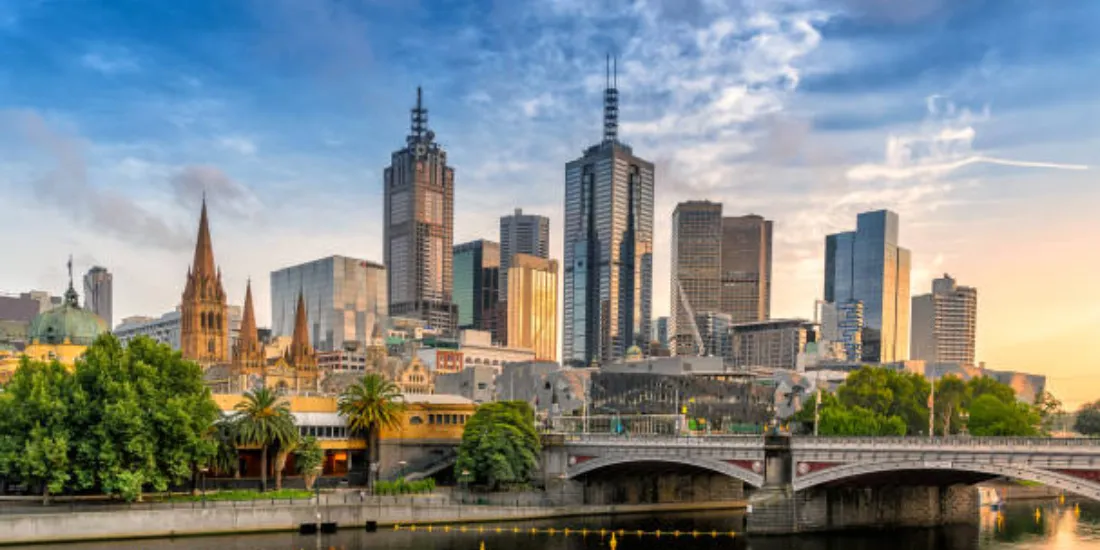
Why Study in Melbourne in 2026?
Let’s be honest-Melbourne doesn’t need a fancy intro. It’s already one of the most popular destinations for overseas education in Australia. But here’s why 2026 is an especially smart year to make the leap.
The Stats Say It All
- Over 200,000 students are enrolled at universities across Melbourne.
- More than 30% are international students-that’s thousands of people just like you adjusting, thriving, and figuring it out.
- 5 universities ranked in the top 400 globally based on QS 2026 rankings.
- Melbourne’s digital, biotech, green energy, and creative industry sectors are booming.
Australia’s post-study work rights recently changed-meaning if you’re in a qualification area classified as high demand (like nursing, AI, education, engineering), you could be eligible for up to 6 years of post-study work under the Temporary Graduate visa.
Plus, in 2026, Victoria (the state Melbourne is in) continues to roll out new student experience programs like paid local internships, language support, and mental health access-especially targeted at international students.
Let’s not forget: Melbourne has been ranked among the most liveable cities in the world for years. Think strong public transport, low crime rates, walkable areas, and genuinely good hospital care if you need it.
Why International Students Choose Melbourne
You Won’t Feel Like an Outsider
Melbourne is truly international. Whether you’re coming from Sri Lanka, Kenya, Brazil, or Italy-you’ll find your people. Real talk: I met someone from 10 different countries in my first orientation session. So many cultural events happen that missing home is a little less brutal. Greek festivals, Lunar New Year parades, Eid dinners on campus-it’s all here.
Student-Friendly Infrastructure
The Melbourne Study Hub downtown offers free legal advice, housing help, resume reviews, mental health counselling, and networking events-all just for students like you. It’s not just about education, it’s about making sure you survive and thrive in a new country.
Universities also have massive student support services, including buddy programs and welcome weeks, which help you integrate, connect, and adjust.
Top Melbourne Universities for International Students
Here’s the honest breakdown-not polished PR language.
University of Melbourne
- Rank: Top 30 worldwide (QS 2026)
- Cost: AUD 42,000–63,000/year
- Best For: Medicine, Law, Finance, Engineering
- Campus Vibe: Historic, elite, diverse. It’s a bit intense-expect competitive classes but amazing facilities.
- My Take: Amazing professors, but you’ll hustle hard. The pressure is real.
Monash University
- Ranking: Top 50
- Tuition: AUD 36,000–52,000/year
- Known For: Pharmacy, IT, Engineering, Business
- Vibe: Innovative, forward-looking, very research heavy. Slightly more relaxed than Melbourne Uni in culture.
- Campus: Clayton is huge-like a small city. Caulfield is more central.
RMIT University
- Focus Areas: Design, Tech, Aviation, Communications
- Cost: AUD 30,000–42,000/year
- Vibe: Urban jungle. The CBD location is directly in the heart of the city.
- Strength: Epic industry links = easier work placements.
La Trobe University
- Fields: Health, Sports Science, Agriculture, Sociology
- Tuition: AUD 28,000–38,000/year
- Location: Northern suburbs (Bundoora campus)
- Chill Factor: Smaller classes, teacher support, less intensity. Feels more personal.
Deakin University
- Top Areas: Education, Nursing, Criminology, Business
- Price: AUD 29,000–39,000/year
- Interesting Bit: Heavy focus on digital learning and practical placements.
Top Student Accommodation in Melbourne
This is where students either sink their budget or find gold.
Scape Swanston, Melbourne Central
- Cost: AUD 380–540/week (single vs studio)
- Amenities: Rooftop cinema, 24/7 gym, study rooms, social events
- Distance: 5 mins walk to RMIT, accessible to UoM
UniLodge
- Rooms: AUD 330–480/week
- Locations: Multiple across the CBD and Parkville
- Tip: Some properties come with meals included. Compare before booking.
Student Village Melbourne
- Average Price: AUD 300–450/week
- Vibe: Super friendly, aged a bit but well-managed
- Best Bit: Next-door to the Uni of Melbourne campus
Homestays
- Cost: AUD 250–320/week (meals included)
- Good For: Students who want a local connection and cultural immersion
- Watch Out: House rules vary and can be strict
Best Neighborhoods for Students in Melbourne
Let’s be real about the vibe-and rent.
Carlton
- Rent: AUD 250–400/week
- Vibe: University central. Italian food, indie cinemas, students everywhere
- Uni Access: Minutes to Melbourne Uni and RMIT
Brunswick
- Rent: AUD 220–350/week
- Scene: Hipster central-record stores, baristas, vintage shops
- Downsides: Longer commute unless you’re at RMIT Brunswick
Bentleigh East
- Rent: AUD 180–320/week
- Great For: Monash Clayton campus
- Lifestyle: Quiet, safe, suburban chill
Box Hill / Burwood
- Rent: AUD 190–290/week (shared housing)
- Uni: Close to Deakin
- Vibe: Family-oriented, multicultural groceries, safer for younger students
CBD (Central Melbourne)
- Rent: AUD 350–550/week
- Pros: Right in the action. Close to everything.
- Con: Pricey, noisy after dark, nightlife overload
Monthly Cost of Living (2026 Snapshot)
| Expense | Low (AUD) | Mid (AUD) | High (AUD) |
| Rent (shared) | 900 | 1,300 | 1,800 |
| Food & Groceries | 250 | 400 | 600 |
| Transport | 60 | 90 | 120 |
| Phone/Internet | 40 | 60 | 80 |
| Social & Fun | 150 | 300 | 500+ |
| Misc. (gym, health) | 70 | 120 | 200 |
| Total Range (AUD) | 1,470 | 2,270 | 3,380 |
Cost-Saving Hacks:
- Cook at home: Aldi & Coles beat UberEats every time
- Download Too Good To Go and HECSY for leftover food deals
- Apply for PTV student pass for unlimited travel discounts
Scholarships & Grants You Should Know
Government:
- Australia Awards – full tuition + living, but competitive
- Destination Australia – up to AUD $15K/year for regional campuses
University Scholarships:
- UniMelb: International High Achiever Grants
- Monash: International Merit Scholarship-50% waive
- RMIT: Global Leaders Scholarship
Tips for Applying:
- Be honest in your Statement of Purpose
- Have 2-3 strong recommendation letters
- Spellcheck everything. Then again.
Step-by-Step Application Guide (for 2026 Intake)
- Research Programs (Sep–Jan 2025) – Use CRICOS and CompareEd
- Prep Docs – Transcripts, test scores (IELTS/TOEFL), passport copy
- Apply Online (Jan–April 2026) – Many unis accept direct apps
- Receive Offer Letter > Accept It > Pay Deposit
- Get Your CoE (Confirmation of Enrolment)
- Apply for Subclass 500 Visa (June–Aug)
- Book Accommodation + Flights (Sept)
- Arrive in Jan-Feb 2026
Visa & Work Rules in 2026 (Melbourne Edition)
- Visa Type: Subclass 500
- Fee: AUD $710 (subject to change)
- Work Rights: 48 hrs/fortnight during classes, unlimited during breaks
- Post-Study Work Visa: Up to 6 yrs based on qualification and sector
Common Mistake? Not showing enough financial proof. Ensure you meet the Genuine Temporary Entrant (GTE) requirement clearly.
Getting Around: Public Transport in Melbourne
- Myki Card: Your lifeline. Needed for trams, buses, trains
- Monthly Costs: AUD 90–130 with student discount
- City Circle Tram: FREE around CBD
- Cycling: Heaps of bike lanes
- Apps: PTV, Moovit, Google Maps
Late-Night Tip: Friday & Saturday nights have late-night trains till 2 AM.
Campus Life, Culture & Daily Routine
Your day might look like: 9 AM lectures, 1 PM bubble tea, 4 PM library, 6 PM dumpling dinner with friends.
Melbourne has something for every type of student:
- Massive orientation events
- Uni sports leagues (even varsity-level rugby)
- Clubs for film, gaming, cultural identities, entrepreneurship
- Food? From Peruvian to vegan ramen-flavours from more than 70+ countries
What surprised me most? How much uni students here actually study. But also how much they balance it with life.
Finding Internships & Jobs in Melbourne
Melbourne has a strong internship culture-some roles are paid, others unpaid (sad but true).
Growing Sectors for Grads:
- Renewable energy
- Fintech
- Cybersecurity
- Public health
- Education and Early Childhood
Use:
- Graduate Careers Australia
- Seek.com.au, GradConnection, and LinkedIn AU
Pro Tip: Start EARLY-internships get snapped up fast. Visit your university careers centre in your first semester.
Final Thoughts – Melbourne as Your Study Destination in 2026
Melbourne isn’t perfect-the weather changes 5 times a day, and housing can be overpriced-but if you land here with a game plan, it’s so worth it. You get academic rigor + street festivals. Cutting-edge research + cheap dumplings in Chinatown.
Top FAQs About Studying in Melbourne (2026)
Melbourne is not just Australia’s best student city, it is also ranked as Australia’s ‘most liveable’ city and #4 in the world’s behind Copenhagen, Vienna and Zurich
The cost to study at the University of Melbourne varies significantly by program, but international undergraduate degrees typically range from approximately AUD 31,870 to AUD 50,450 per year.
Melbourne is generally considered to be a very safe city. In the 2021 Safe Cities Index, it ranked 9th in the world for overall safety, and was rated as having ‘very high’ safety across digital security, health security, infrastructure security and personal security.
Law (ranked 1st in Australia)
Psychology (ranked 1st in Australia)
Arts and Humanities (ranked 1st in Australia)
Geography (ranked 1st in Australia)
Medicine (ranked 2nd in Australia)
Victoria University is often cited as one of the cheapest universities in Melbourne, with tuition fees for international students potentially ranging from AUD $14,300 to $16,100 per semester. Other affordable options include the University of Divinity, Swinburne University of Technology, and Federation University Australia.
The average cost of living in Melbourne for international students is around AUD 1500 – AUD 2000. As compared to working professionals and those living with their families, the monthly budget for international students living in Melbourne is slightly lower.
Fluent, yes. Perfect? No. You’ll adjust.
Competitive, but possible. Start early, write honestly.
Start NOW. Apply between Jan–April 2026 latest.



